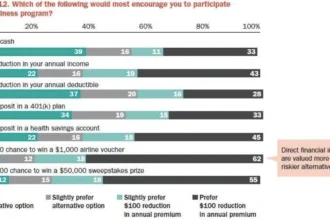The pharmaceutical industry has undergone some tremendous changes in recent years. Despite changes brought on by the Patient Protection and Affordable Care Act and other trends, it is still one of the largest industries in the United States and the rest of the world. The global market for pharmaceuticals is currently worth over $405 billion.
Although there are a lot of opportunities as a drug manufacturer, there are also some challenges. Drug companies are under a lot of pressure to create the highest quality pharmaceuticals to meet the needs of their customers.
In order to achieve this goal, they have to get the evidence needed to prove the safety and efficacy of their products. Keep reading to learn how they can do this.
Drug Companies Need to Generate Evidence Proving the Quality of their Products
Every year the competition in the drug market is getting more challenging. This is one of the biggest trends shaping the industry. Each new drug they develop requires a comparative evaluation and proof of its effectiveness and economic value.
At the same time, the evidence requirements are getting stricter. The FDA and other regulators require pharmaceutical companies to demonstrate the safety of their products, especially when there is so much controversy over things like the COVID-19 vaccines. For this reason, obtaining comprehensive evidence of the value of manufactured products has become critical in the pharmaceutical industry over the past few years. In addition, a strategic research approach contributes to an evidence base that can be shared with all stakeholders on time.
Evidence generation strategy – what is it
Developing new pharmaceuticals is a process of evidence generation that the following qualities can characterize:
- a focus on the outcome defined by the producing company;
- full use of available data;
- the detailed design of all research work;
- the systematicity and standardization of research.
The result of such work is the creation of a single database of evidence, which demonstrates the new pharmaceutical’s value to payers and decision-makers.
There is growing pressure to improve the quality of evidence as the drug industry changes. The necessary steps in developing an evidence strategy are:
- collecting and analyzing existing data, market research, and identifying competitive issues to identify gaps in the existing evidence base;
- establishing the key value of a new drug or technology;
- identifying and prioritizing the evidence supporting the key value of the novelty;
- identifying the resources required to collect the data, establishing a timetable for the work;
- creating a publication plan and a strategy for communicating the generated evidence base to stakeholders.
In other words, developing an evidence strategy comes down to comprehensive planning of the research work. The main objective of such planning is to structure and align the data collection process with specific strategic goals.
Why pharmaceutical companies need an evidence-gathering strategy
Such companies have a complex organizational structure due to pharmaceutical product development, manufacturing, and sales processes. This, in turn, makes data collection for the evidence base more difficult because the more complex an organization is, the more difficult it is to establish communication between its departments and employees.
Developing an evidence base strategy allows research to be organized more quickly. As a consequence, the process of generating, verifying, and communicating evidence to clients and decision-makers is also much faster. This, in turn, makes the decision-making processes for market admissions and monetary compensation happen as quickly as possible, which gives the company a competitive advantage.
Key Elements of Strategic Research Planning
Effective strategic planning for obtaining evidence on new drugs includes:
- top-level scientific expertise (both therapeutic and methodological);
- A consistent approach;
- Recommendations for developing an evidence base that is solution-oriented and communication-oriented;
- emphasis on obtaining the evidence needed for a particular audience.
Drug company executives appreciate the need to do these things as rigorously as possible.
Evidence strategy development by consulting firms
Today, many consulting companies like digitalho offer evidence strategy development services. For this purpose, they use modern digital solutions that allow them to work with large amounts of information and new data types. The result of a competent development of a strategic approach to evidence generation is a comprehensive research strategy that will work for more than one year at all stages of product creation.








